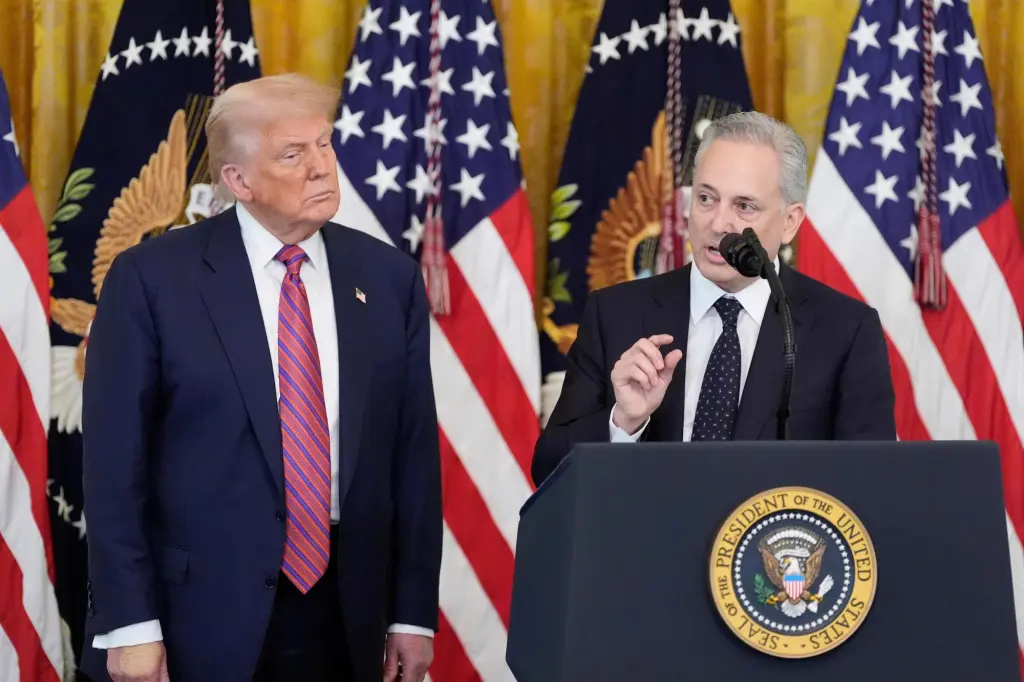
President Donald Trump once dismissed bitcoin, the most popular cryptocurrency, as “based on thin air.” It is a “scam.” It can “facilitate unlawful behavior, including drug trade and other illegal activity.”
These words echo the views of Public Citizen and many Americans, a majority of whom view crypto dimly.
Now, Trump self-proclaims as the crypto president. And perversely, because of an unprecedented tsunami of political spending by a handful of crypto “bros,” or promoters, a politically intimidated Congress already approved one crypto law and prepares to approve another as early as this month.
U.S. Sen. Mark Warner of Virginia may join the bros again this month to vote as he did for the first law, the GENIUS Act.
The crypto sector spent some $40 million defeating Sen. Sherrod Brown, D-Ohio, one of the most caustic crypto critics on Capitol Hill. In all, the crypto bros spent more than $119 million on the 2024 election, according to Public Citizen reports, more than any other industry in the history of such expenditures.
Infamously, the crypto sector spent $10 million contesting the California senate primary bid of then-Rep. Katie Porter, D-Calif., whom they identified as anti-crypto. Porter’s muted public pronouncements on crypto mostly addressed the enormous computing energy costs required to confirm transactions, or “mining.” Crypto mining today absorbs more energy than the entire nation of Argentina.
In crime, stablecoins make for fast, cross-border, largely anonymous transactions. Georgetown researchers reported that in 2024, illicit transactions with stablecoins passed $51 billion, up from $46 billion in 2023.
These cryptocurrencies peg to a fiat currency 1-to-1. One dollar buys one token of, say, tether, which is the most widely used. Tether is widely used for illicit commerce.
Trump now issues stablecoin, which is used for a Middle East business. For the sponsor, a stablecoin is an interest-free loan. After Abu Dhabi sent Trump $2 billion, he sold them $2 billion worth of his newly conceived token. Until they redeem for their dollars, he can buy Treasuries and pocket the interest.
The pending vote this month on the smugly named Responsible Financial Innovation Act (more accurately the Ponzi Finance Enablement Act) concerns all the other cryptocurrencies, including bitcoin. All bitcoin put together is worth some $2 trillion, and the tens of thousands of other cryptocurrencies are worth more than $1 trillion collectively.
Dependent on the “greater fool” theory, buying bitcoin doesn’t get the purchaser a dividend, an interest payment, a piece of a goods or service-producing enterprise. It’s just “thin air,” as Trump once correctly sniffed. An owner must find a buyer willing to pay a higher price than he did — a greater fool.
Political spending, however, seems to swamp politicians’ concerns about these clear problems of a Ponzi scheme, illicit finance, energy waste and Trump’s grift — which amounts to the greatest corruption in presidential history, according to the nation’s leading ethics experts.
Crypto bro political spending notably buys ads that don’t mention crypto. Understanding that most Americans oppose crypto, the ads focus on other virtues of a pro-crypto candidate and exaggerate the missteps of an anti-crypto candidate.
Already, the crypto bros have amassed a $100 million war chest for the mid-term elections in 2026, which they publicize threateningly. Some senators may calculate that it’s safer to vote with crypto. Constituents may hold crypto in low esteem, but it doesn’t drive their vote in elections that way that wars in the Middle East and Ukraine, reproductive rights, tax fairness and health care costs so often do. Voting against crypto brings the deluge of oppositional ads during election season but may not win many votes.
Ideally, Warner will not surrender to crypto bro spending. Ideally, he’ll stop harmful legislation, demand that Trump be expelled from crypto ventures, which are blatantly illegal conflict-of-interest law violations, and insist on meaningful consumer and investor safeguards from this Ponzi. Ideally, he will vote no on the “Ponzi Finance Enablement Act.”
Bart Naylor of Arlington is a financial policy advocate for Public Citizen.



